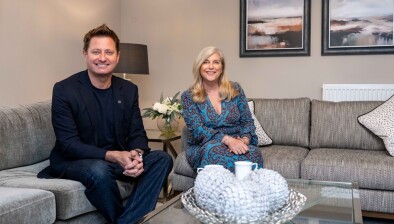More homes needed to curb increasing social inequality
 The publication of two new reports has highlighted the potential for increasing social inequality as a result of undersupply in the housing market, according to Homes for Scotland.
The publication of two new reports has highlighted the potential for increasing social inequality as a result of undersupply in the housing market, according to Homes for Scotland.
The industry body, which represents the home building industry in Scotland, was responding to new research suggesting that half of Scots no longer believe they will buy their own home - and official forecasts predicting a 13% rise in the number of households across the country in the next 25 years.
Figures from Bank of Scotland found 48% of Scots felt they would never buy their own home, while less than a third (29%) were confident about their future purchasing prospects.
Meanwhile the National Records of Scotland (NRS) has predicted that the number of households is projected to rise by 317,000 between 2016 and 2041. Single-person homes are expected to grow from 36% to 41% of all households over the same period.
Homes for Scotland said the reports highlight the need for more new homes to meet aspiration and rising number of new households.

Director of policy Karen Campbell said: “With First Time Buyers right across the country finding it a challenge to get on the housing ladder, the single biggest pressure on house prices and rents remains lack of supply.
“Whilst there was a welcome increase in the total number of housing completions last year, this remains 30% down on pre-recession levels and equates to just 806 extra new homes on 2016 – a drop in the ocean in relation to the number of new households that are now projected to be formed, particularly by older people.
“We therefore need to better enable the delivery of new homes and avoid further widening the gap between the housing ‘haves’ and ‘have nots’ so it is crucial that local authorities and industry work together to ensure communities get the full range of homes of all tenures they need to sustain themselves and their economies. This requires ensuring the viability of development and, in relation to meeting the needs of our younger and older populations, ensuring that smaller homes are not disproportionately more expensive to build.”
The Bank of Scotland’s latest How Scotland Lives research, which shows a snapshot of how Scots are feeling about the idea of getting on the property ladder, also reveals that just under one in three (31%) of Scots also believe that it is normal to think that they will never own their own home.
On the other hand, a significant proportion (17%) of non-home owners are concerned by this, as are over one in ten parents (11%), who are concerned that their children will never be able to buy a property.
Of those Scots living at home but aiming to buy a property, 79% expect to be able to make their first purchase before their 36th birthdays, and just under half (48%) are aiming to do this between the ages of 26 and 30.
After ‘buying with a partner’ (41%), the most popular help Scots expect to get in order to purchase a property is through the Help to Buy scheme from the Government (35%).
Almost one third (29%) will save the money they need to get onto the property ladder by working additional hours or getting an additional job.
Many aspiring homeowners make the most of the government’s 25% bonus on savings, which can go towards their first home, with a Help to Buy: ISA. People can save up to £200 per month, however the minimum annual government bonus is £400, meaning that you need to save at least £1,600 before the bonus can be claimed. The maximum government bonus you can receive is £3,000. To receive that, you need to have saved £12,000.
Ricky Diggins, network director for Bank of Scotland, said: “Attitudes towards home ownership are changing, with many people reassessing if and when they will make their first property purchase.
“However, many people still dream of owning their own place, and even though it is arguably harder to buy now than ever before, there is help at hand. Lots of people look to get help from their family, or partners, and are coupling that support with schemes like Help to Buy, to help them take that first step onto the property ladder.”
More than one in five (22%) Scots anticipate financial support from family members to help them buy their own home, and 15% of parents believe they will need to provide their children with substantial financial help to get them onto the property ladder.
So it’s good news that one in four (25%) parents are happy to help their children with the costs of buying a house. The younger generation of parents appear more keen to provide a helping hand, with just under half (46%) of 18 to 24 year olds saying they’re happy to help their children buy a home, as opposed to just 21% of people aged 45 to 54, and 26% of those aged 55 and over.
Overall, just 6% of parents feel under pressure to help their children with the costs of buying a house.








